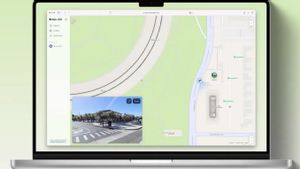YOGYAKARTA - Protecting personal data on your internet and professionals online and mobile is no different from protecting your home and vehicle. Security can be as simple as locking doors, or as complicated as a monitoring and alarm system.
The first step is a mindset that identifies your exposure, risk, and information management whenever requested.
The first step is easy. Stop giving it. The general and effective way to get people's information is to ask for it, whether buying at retail cashiers, joining online groups, or via phishing emails. Because we are polite or in a hurry to achieve our goals, we often just give up.
Beware of unsolicited emails that have an "urgent feeling" and warn that your account will be closed or your access is limited if you don't reply.
You can say no especially if it's difficult to see how services or transactions require that information. I don't need to share my full address to buy pants. And don't share or provide your classified information via email or by phone (unless you start the call).
The mobile app also has implications for personal data. Many force you to receive certain permissions (access to contacts, photos, GPS locations, etc.) to download the app. In many cases, the permission has nothing to do with the functionality of the app.
It's best to open permission settings for each app after you download it and select anything that's uncomfortable for you. Do this with a new app and for everything you already have.
When we talk on our phone, make sure your smartphone is locked automatically when not used. If you lose your phone, whoever finds it shouldn't be able to access it. Many new smartphones have fingerprint authentication, which is better than a simple password or swiping pattern.
If possible, configuration "Find out my phone" to find your phone if it's lost or stolen.
Each social media platform has privacy and security policies. If you're going to use social media, you should know what to collect and share. If you're using Facebook extensively, take the time to review and understand privacy settings to make sure you're comfortable. This is a powerful data collection machine.
The Internet of Things (IoT) is on us and computing technology is embedded in household equipment and systems, alarms and controls, and various home automations such as lighting. Stories about connected baby monitors, Okantat, and hacked security cameras are very concerning.
Do the following to improve IoT security: immediately change the factory's default password router, make sure it's a password; update firmware regularly; and if the device must be accessible directly via Internet, segment it into its own network and limit access.
Protecting yourself from data theft or identity doesn't have to be complicated. But that's something we all need to address in an increasingly connected and digital world.
There is the potential for contracting a computer virus or other types of malware. This can cause damage to your computer, provide access to your classified information, or even cause ransomware attacks. Criminals seek vulnerabilities in the software. It is very important to install software (ambals) updates if provided by vendors.
After knowing 5 simple ways to protect personal data on the internet, see other interesting news on VOI, it's time to revolutionize news!
The English, Chinese, Japanese, Arabic, and French versions are automatically generated by the AI. So there may still be inaccuracies in translating, please always see Indonesian as our main language. (system supported by DigitalSiber.id)













